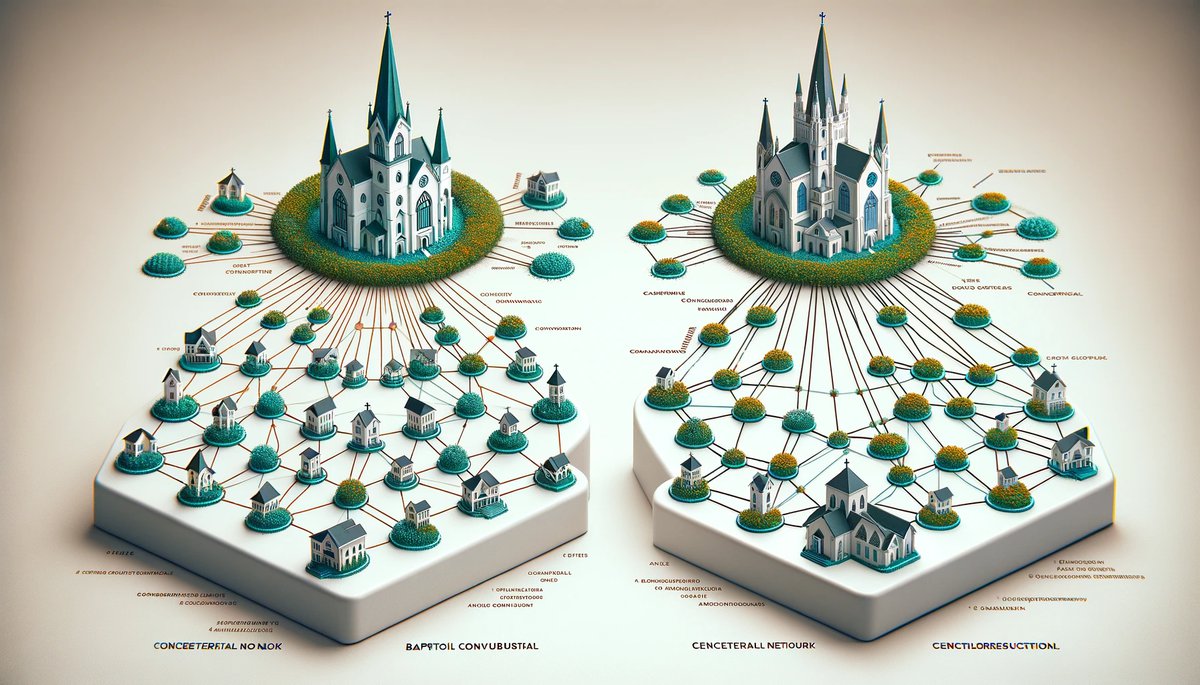Home>Theology and Spirituality>What Is The Difference Between Being Under The Law And Under Grace?


Theology and Spirituality
What Is The Difference Between Being Under The Law And Under Grace?
Published: March 7, 2024
Jason DeRose, Managing Editor at Christian.net, uses his expertise in religion and journalism to deepen understanding of faith's societal impacts. His editorial leadership, coupled with a strong academic background, enriches the platform’s diverse content, earning him recognition in both journalism and religious circles.
Discover the key distinctions between living under the law and under grace in theology and spirituality. Explore the transformative impact of embracing grace over legalism.
(Many of the links in this article redirect to a specific reviewed product. Your purchase of these products through affiliate links helps to generate commission for Christian.net, at no extra cost. Learn more)
Table of Contents
Understanding the Concept of Being Under the Law
Being under the law refers to living according to a set of rules and regulations prescribed by religious or moral codes. In religious contexts, it often pertains to adhering to the commandments and laws outlined in sacred texts, such as the Bible, Torah, or Quran. This concept is prevalent in various religious traditions and is often associated with the idea of earning salvation or divine favor through strict obedience to these laws. The emphasis is on following a prescribed set of rules and regulations to attain righteousness and spiritual fulfillment. In Christianity, being under the law is often linked to the Old Testament laws given to the Israelites, which encompassed moral, ceremonial, and civil regulations.
-
Legalistic Approach: Being under the law often involves a legalistic approach to faith, where individuals strive to fulfill the requirements of the law through their own efforts. This can lead to a performance-based mentality, where one's worthiness is measured by adherence to the law's standards.
-
Burdensome Nature: The concept of being under the law can also carry a burdensome nature, as individuals may feel the weight of trying to meet the demands of the law without the assurance of grace and forgiveness. It can lead to feelings of guilt, condemnation, and inadequacy when unable to fulfill the law's requirements.
-
Focus on External Compliance: Under the law, the focus is often on external compliance with the rules and regulations, rather than an internal transformation of the heart and character. This can result in a superficial adherence to the law without genuine spiritual growth.
-
Limited Capacity for Redemption: Being under the law may imply a limited capacity for redemption, as it relies on human effort to maintain righteousness and address shortcomings. This can create a sense of hopelessness and despair, as individuals struggle to meet the perfect standards set by the law.
-
Role in Old Testament: In the context of Christianity, being under the law is closely associated with the Old Testament covenant and the Mosaic Law, which governed various aspects of the Israelites' lives, including moral conduct, worship practices, and societal regulations.
Understanding the concept of being under the law provides insight into the traditional framework of religious adherence and the challenges associated with a legalistic approach to faith. It sets the stage for exploring the contrasting paradigm of being under grace, which offers a transformative perspective on spiritual life and relationship with the divine.
Exploring the Meaning of Being Under Grace
Being under grace signifies living in accordance with the concept of unmerited favor and divine empowerment. In religious contexts, particularly within Christianity, it denotes the recognition of God's unconditional love and forgiveness, extended to individuals regardless of their actions or worthiness. This paradigm emphasizes the transformative power of grace, which enables believers to experience spiritual renewal, freedom from the burden of legalistic adherence, and a deepened relationship with the divine. Unlike being under the law, being under grace is characterized by an emphasis on God's mercy, compassion, and redemptive work in the lives of individuals.
Key Aspects of Being Under Grace
-
Unconditional Acceptance: Under grace, individuals are embraced by the unconditional acceptance of a loving and merciful God, irrespective of their past mistakes, shortcomings, or failures. This fosters a sense of security and belonging, as believers recognize that their worth is not contingent on their ability to fulfill legalistic requirements.
-
Empowerment for Transformation: Being under grace involves receiving divine empowerment for spiritual transformation and growth. It acknowledges that genuine change and righteousness stem from the inner workings of grace, rather than mere external compliance with rules and regulations. This empowerment enables believers to live out their faith authentically and to embody the values of love, compassion, and forgiveness.
-
Freedom from Guilt and Condemnation: Grace liberates individuals from the burden of guilt and condemnation that often accompanies a legalistic mindset. It offers the assurance of forgiveness and restoration, allowing believers to move forward with hope and confidence in their relationship with the divine.
-
Emphasis on Relationship: Under grace, the emphasis shifts from rigid adherence to laws to cultivating a meaningful relationship with God. This relational aspect fosters intimacy, trust, and a sense of partnership with the divine, as believers recognize the depth of God's love and involvement in their lives.
-
New Covenant in Christianity: The concept of being under grace is closely associated with the New Covenant in Christianity, which emphasizes the redemptive work of Jesus Christ and the transformative power of God's grace. This covenant supersedes the legalistic framework of the Old Testament, offering a renewed perspective on faith and salvation.
Exploring the meaning of being under grace unveils a paradigm of spiritual life characterized by love, freedom, and empowerment. It contrasts the burdensome nature of legalism and highlights the profound impact of grace in shaping the beliefs, attitudes, and actions of individuals within religious communities.
The Impact of Being Under the Law on Daily Life
Living under the law exerts a significant impact on the daily lives of individuals, shaping their perspectives, behaviors, and interactions within their religious communities and beyond. The influence of legalism extends to various facets of daily life, encompassing personal beliefs, social dynamics, and emotional well-being. Understanding the implications of being under the law provides insight into the challenges and complexities faced by individuals adhering to strict religious codes and regulations.
Effects of Legalism on Daily Life
-
Mental and Emotional Strain: The pressure of striving to meet the demands of the law can lead to mental and emotional strain. Individuals may experience anxiety, fear of failure, and a constant sense of inadequacy as they seek to uphold the standards set by legalistic frameworks. This strain can impact their overall well-being and contribute to feelings of stress and disillusionment.
-
Judgment and Self-Righteousness: Being under the law can foster a culture of judgment and self-righteousness within religious communities. Individuals may become preoccupied with evaluating the adherence of others to the law, leading to a critical and divisive environment. This judgmental attitude can hinder genuine relationships and create a sense of superiority or inferiority based on perceived levels of compliance with the law.
-
Rigid Interpretation of Practices: Legalism often promotes a rigid interpretation of religious practices and traditions. This rigidity can limit individual expression, creativity, and personal interpretation of faith, as adherence to specific rules and rituals becomes the primary focus. The inflexibility of legalistic frameworks may stifle spiritual growth and hinder the exploration of diverse perspectives within the religious community.
-
Struggle with Guilt and Shame: The emphasis on adherence to the law can intensify feelings of guilt and shame when individuals perceive themselves as falling short of its standards. This internal struggle can impact their self-esteem and confidence, creating a cycle of self-condemnation and a fear of judgment from both the divine and fellow believers.
-
Impact on Relationships: Legalism can influence the dynamics of interpersonal relationships, as individuals may interact with others based on their perceived level of adherence to the law. This can lead to a lack of authenticity and vulnerability in relationships, as individuals fear judgment or rejection based on their perceived spiritual performance.
-
Performance-Based Identity: Living under the law can contribute to the development of a performance-based identity, where individuals derive their sense of worth and acceptance from their ability to fulfill the requirements of the law. This can lead to a distorted understanding of self-worth and hinder the experience of unconditional love and acceptance.
Understanding the impact of being under the law on daily life sheds light on the complexities and challenges faced by individuals navigating the demands of legalistic religious frameworks. It underscores the need for a holistic and compassionate approach to faith that encompasses grace, empathy, and a focus on the relational aspects of spirituality.
The Transformation of Being Under Grace in Daily Life
Living under grace initiates a profound transformation in the daily lives of individuals, permeating their thoughts, actions, and relationships with a sense of freedom, love, and empowerment. The impact of grace extends beyond personal spirituality, influencing the way believers engage with others, navigate challenges, and perceive their identity within their religious communities and the broader society. Understanding the transformative nature of being under grace provides insight into the positive shifts and empowerment experienced by individuals embracing this paradigm.
Manifestations of Transformation
-
Renewed Mindset: Being under grace cultivates a renewed mindset characterized by hope, gratitude, and a sense of purpose. Individuals experience a shift from a fear-based mentality to a mindset grounded in the assurance of God's love and forgiveness. This transformation fosters resilience, optimism, and a deepened appreciation for life's blessings, enabling believers to navigate challenges with courage and faith.
-
Embrace of Imperfection: Grace encourages an embrace of imperfection and vulnerability, dispelling the notion that worthiness is contingent on flawless adherence to rules and regulations. Individuals find freedom in acknowledging their humanity, embracing their flaws, and extending the same grace and compassion to others. This shift fosters authentic connections and a culture of empathy within religious communities, promoting inclusivity and understanding.
-
Empowerment for Service: Under grace, individuals are empowered to engage in acts of service, compassion, and justice, motivated by a genuine desire to extend the love and grace they have received. This transformation leads to a proactive involvement in addressing societal issues, advocating for the marginalized, and fostering a culture of kindness and generosity. The empowerment derived from grace fuels a passion for making a positive impact in the lives of others, transcending self-centered pursuits.
-
Restored Relationships: Grace facilitates the restoration of relationships, both with the divine and with fellow believers. Individuals experience a deepened sense of connection with God, characterized by trust, intimacy, and a profound understanding of divine love. This relational transformation extends to interpersonal connections, fostering forgiveness, reconciliation, and a spirit of unity within religious communities. Grace becomes the foundation for nurturing healthy, supportive relationships built on mutual respect and understanding.
-
Authentic Identity: Living under grace enables individuals to embrace an authentic identity rooted in the understanding of being unconditionally loved and accepted by the divine. This transformation liberates believers from the pressures of performance-based identity, allowing them to express their unique gifts, talents, and perspectives without fear of judgment or rejection. The recognition of their inherent worthiness fosters a sense of confidence, purpose, and a commitment to living out their values authentically.
Understanding the transformation of being under grace in daily life illuminates the profound impact of grace in shaping the attitudes, behaviors, and contributions of individuals within religious communities. It underscores the liberating and empowering nature of grace, offering a transformative alternative to the burdensome constraints of legalism.














